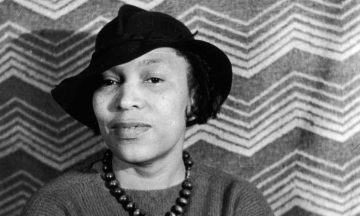Kathryn Hughes in The Guardian:
 In 1928 Margaret Mead published Coming of Age in Samoa in which she argued that the sulks and slammed doors of American teens had nothing to do with their hormones and everything to do with their picket-fenced parents. By way of evidence 27-year-old Mead used the findings from her recent anthropological fieldwork in the South Pacific. Samoan adolescents, she explained, were happy growing up to be just like Mum and Dad. There was no thought of rebellion, because there was nothing to rebel against. Gender was generously accommodating to girly-boys and boyish girls and, while monogamy was fine in principle, it was nothing to get steamed up about if you fell a bit short. As if this weren’t all thrilling enough, Mead’s publisher put a picture of a topless Samoan woman on the cover of her book. Naturally, it was a bestseller.
In 1928 Margaret Mead published Coming of Age in Samoa in which she argued that the sulks and slammed doors of American teens had nothing to do with their hormones and everything to do with their picket-fenced parents. By way of evidence 27-year-old Mead used the findings from her recent anthropological fieldwork in the South Pacific. Samoan adolescents, she explained, were happy growing up to be just like Mum and Dad. There was no thought of rebellion, because there was nothing to rebel against. Gender was generously accommodating to girly-boys and boyish girls and, while monogamy was fine in principle, it was nothing to get steamed up about if you fell a bit short. As if this weren’t all thrilling enough, Mead’s publisher put a picture of a topless Samoan woman on the cover of her book. Naturally, it was a bestseller.
Since its publication 90-odd years ago, there has been plenty of time to pick holes in Mead’s masterwork, to call her out for being naive about what the Samoans were telling her; for effectively drawing up a personal manifesto for her own rackety preferences (three husbands, several female lovers); for drawing on tired tropes about sexy South Sea islanders. But the fact remains that Mead’s account was the most public sign to date that there was a new kind of anthropology in town. It was anthropology as practised and promoted by Franz Boas at Columbia University, and involved looking at other cultures from a position of deep curiosity and respect rather than the assumption of superiority. According to this Boasian way of thinking, the Samoans were not simply a bunch of picturesque primitives whose slightly saucy customs represented a timeless way of being. They were, rather, sophisticated, self-aware people who had developed ways of doing things that worked for them. Today we call this openness to other people’s reality “cultural relativism”.
More here.
